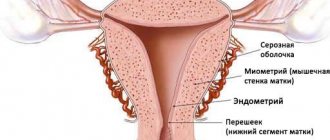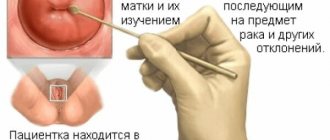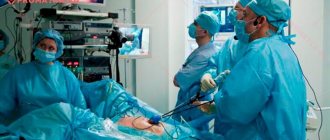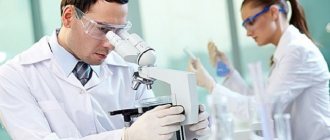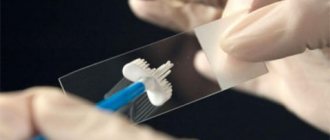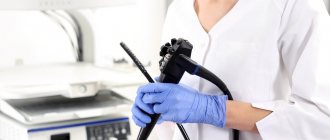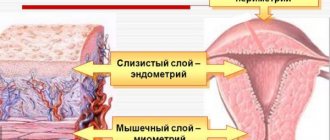Without any doubt, we can say that infertility is a huge problem that has taken many young couples by surprise. Judging by annual statistics, recently the number of women suffering from this disease has been increasing very quickly. This phenomenon often occurs due to pathologies in the endometrium, which, by the way, could have been eliminated even before pregnancy.
However, the chance of a full recovery directly depends on when the problem was identified and when it was treated. To determine possible causes, a considerable number of methods can be used, one of which is endometrial immunohistochemistry. This is a rather complex and, in turn, specific range of tests, which is prescribed exclusively by the attending physician.
What it is?
Immunohistochemistry of the endometrium is a special and rather difficult study of the endometrium. This analysis allows for extensive examination and diagnosis of the uterine mucosa. Judging by the name, it becomes clear that IHC includes both histological and immunological studies. The former are responsible for studying the composition of tissues, and the latter for searching for pathogens and antibodies. During the study, it will be possible to establish the presence of cells that do not allow a woman to become pregnant. During this procedure, their number will also be determined.
With the help of such an analysis, it will be possible to assess how sensitive the endometrial receptors are to natural hormonal stimulation during the period when ovulation occurs, as well as during active hormone therapy before in vitro fertilization. This is done due to the fact that the following problem often arises: the woman’s health is normal, her hormonal levels and endometrium are the same, antisperm antibodies have not been found, but despite this, she cannot get pregnant. The main reason for this phenomenon is the following fact: the endometrium refuses to perceive hormonal effects, and therefore does not renew itself and does not thicken.
https://youtu.be/SJ4-vYDzqRw
What is immunohistochemistry
Immunohistochemical examination of the endometrium is a special and difficult procedure that allows an extensive examination of the uterine mucosa and an accurate diagnosis. The method involves two examinations at once - immunological and histological. At the same time, the composition of the endometrium is studied, and antibodies and pathogens are identified in it. Thanks to the results obtained, the presence of cells that prevent conception and their number are accurately established.
Immunohistochemical analysis allows us to assess the level of sensitivity of the receptors of the reproductive organ layer to natural stimulation of hormones at the time of ovulation and during treatment using hormonal drugs before IVF. Such a study is performed when the woman is healthy, the hormonal background and the condition of the endometrium are normal, antisperm antibodies are not found, but pregnancy, despite everything, remains impossible. This problem is caused by the fact that the uterine layer does not perceive hormonal effects and ceases to renew itself and thicken.
What it detects and when it is prescribed
As mentioned above, the purpose of IHC is to diagnose infertility. Thus, let us consider the most common cases of prescribing immunohistochemical analysis:
- In vitro fertilization was unsuccessful;
- The patient constantly experiences miscarriages in early pregnancy;
- The woman has symptoms of infertility, but the diagnosis has not yet been confirmed;
- Diagnosed with infertility.
In addition, as experience shows, with such a study, in addition to the cause of infertility, a different type of endometrium can be identified. In this regard, IHC is often prescribed in cases where it is necessary to diagnose chronic sluggish endometritis, which cannot be determined by other methods. Also during the study the following diagnoses can be made:
- Incomplete transformation of the endometrium;
- Endometritis;
- Disturbance and desynchronization of the phases of its development;
- Hyperplasia.
In approximately 70-75% of cases, it is one of the above reasons that leads to infertility. It is worth noting that all these diseases are quite easy to treat if they are identified in the early stages.
IHC mainly examines a biopsy of the uterine lining. This material is obtained using a special aspiration curette - pipel. The process is painless and does not require the use of anesthesia.
Upon completion of the study, the doctor calculates the duration of the implantation window - a certain period of time during which the greatest correspondence between the endometrium and the embryo is observed. During this period, the presence of pinopodia is checked. Normally, the implantation window begins to be recorded from the 20th to the 24th day of the menstrual cycle.
Contraindications
Immunohistochemical examination of the endometrium has no special contraindications. The only case when it is impossible to perform this analysis is the impossibility of collecting tissue samples needed for research. However, it is worth noting the indications for this procedure:
- Repeated failed IVF attempts;
- Early pregnancy loss;
- Suspicion of a malignant neoplasm;
- Study of infertility and identification of its causes.
It is worth noting that almost any tissue can be examined using IHC. Among the above indications, the most important is the suspicion of a malignant neoplasm.
Immunohistochemical study (IHC)
Immunohistochemical study (IHC). What is this?
Immunohistochemistry is an additional research method used in pathological anatomy in the diagnosis of benign and malignant neoplasms, when making a diagnosis from histological preparations is not possible or clarification of clinically important molecular parameters of the tumor is required.
This technique is based on identifying proteins specific to a particular type of cell in the analyzed tissue sample, which makes it possible to distinguish one type of tumor from another, as well as identify markers responsible for the drug sensitivity of tumor tissue.
Why is immunohistochemistry needed if a histological examination has already been done?
In some cases, a conventional histological examination of a biopsy is not enough, due to the following reasons:
- the tumor has an extremely nonspecific microscopic structure, which does not allow a definitive diagnosis.
For example, the diagnosis of almost all lymphomas and leukemia (more than 70 types!) is made after an IHC study, and in some cases an additional molecular genetic study is required; in turn, the histological diagnosis of “small round cell tumor” can hide up to 13 different malignant tumors, each of which has its own prognosis and requires an individual chemoradiotherapy treatment plan - the only method that can help the doctor differentiate this group of tumors is IHC research
.
Time frame for performing IHC studies
In accordance with clause 24 of Order No. 179n dated March 24, 2016 of the Ministry of Health of Russia, the deadline for performing an IHC study is:
- using up to 5 markers inclusive – no more than 7 working days,
- using more than 5 markers – no more than 15 working days.
Possibilities of IHC research
1. Diagnostics:
- final (less often intermediate) diagnosis of the tumor process (various types of cancer, soft tissue sarcomas, melanoma, typing of lymphomas and leukemia),
- clarification of the degree of malignancy of the tumor (for example, neuroendocrine tumor), which will determine the prognosis of the disease,
- differential diagnosis of tumors and non-tumor processes,
- determination of the organ affiliation of a metastasis with an unknown primary localization (not applicable for all tumors!),
- differentiation of multiple tumor processes (the presence of 2 or more different tumors in a patient).
2. Drug sensitivity
- steroid hormone receptors (estrogens receptors, progesterone receptors, androgen receptors) – breast cancer, uterine (endometrial) cancer, other tumors;
- Her2/neu protein - breast cancer, stomach cancer, bladder cancer;
- somatostatin receptors 2A and 5 types – neuroendocrine tumors (carcinoids);
- PD-L1 – non-small cell lung cancer, non-pigmented melanoma, other tumors;
- ALK—non-small cell lung cancer;
- ROS1 - non-small cell lung cancer;
- microsatellite instability (MSI) – colon cancer, other tumors;
- proliferative activity index (Ki-67) – various types of malignant tumors.
Price
Patients who are not hospitalized in hospitals at the National Medical Research Center for Oncology can find out about the cost of IHC testing at the reception of the pathology department (4th floor, room No. 12).
If I have a compulsory medical insurance policy, do I have to pay for an immunohistochemical study?
For all patients hospitalized in the hospitals of the National Medical Research Center for Oncology and receiving medical care under compulsory medical insurance or high-tech medical care, IHC testing is performed free of charge. A necessary condition for performing a free study is that the patient is hospitalized in a hospital at the time of registration of the IHC.
In all other cases, IHC research is performed at the patient’s personal expense.
We recommend contacting your insurance company for more detailed information.
Proper preparation
Since the collection of the material needed for research is carried out using the method of conventional curettage, you need to understand that it needs to be carried out only during the period when the endometrium is ready for this. Because of this, the doctor is forced to schedule tests on a specific day. This procedure is strictly not recommended on any other day. In most cases, the material can be collected on days 5-7 of the cycle to diagnose inflammatory processes and growths. If an assessment of receptor function is required, then the procedure is performed on days 20-24.
In addition, there is a small list of rules that must be followed:
- Do not take hormonal medications for a week before the test;
- Do not take blood thinners to avoid bleeding after the biopsy procedure;
- Follow all hygiene rules on the day the IHC is performed.
Advantages of immunohistochemistry
This diagnostic method has several advantages:
- increased sensitivity (primary antibodies allow several molecules of labeled antibodies to attach to themselves at once);
- the results of such diagnostics can be obtained already 3 hours after the procedure;
- the analysis requires a small amount of reagents and antibodies.
Another common reason for performing immunohistochemistry is suspicion of a breast tumor. This disease unfortunately affects many women, and it is very important to detect it in a timely manner and be under the supervision of experienced doctors. Our clinic performs breast immunohistochemistry and provides the most modern and effective conditions for treatment.
The analysis begins with taking tissue close to the suspected tumor, this happens using a trephine biopsy. After which the resulting material is sent for diagnostics to equipped, high-tech laboratories. The study determines the nature of the tumor, which can be either positive or negative. The type of treatment differs radically depending on the type of HER2 character, so carrying out such a process is mandatory for further actions.
At KDS Clinic, the price of immunohistochemistry is absolutely affordable. Get tested and receive high-quality, effective, high-class help. Don’t give up and give up; together, we will overcome any troubles and win back your health!
Progress of the procedure
Immunohistochemical analysis of the endometrium is carried out as follows:
- An anesthetic is administered;
- Installation of special expanders;
- Preventive measures;
- Insertion of a hysteroscope;
- Curettage procedure;
- Removing the drug;
- Cauterization of damaged vessels;
- Removing equipment;
- Repeated scanning of each organ;
- Removing the expanders.
After all these procedures are completed, the patient is transferred to a separate room, where she will remain until she recovers from anesthesia. After this, she can already leave the hospital. Results will be available within a few days.
Move
Immunohistochemistry of the endometrium is most often performed by hysteroscopy, since it is the safest and least traumatic, as well as informative. This is done in several stages:
- The patient is given an anesthetic;
- Dilators are installed on the vagina and cervix;
- Rehabilitation is being carried out;
- The optical system of the hysteroscope is introduced;
- The hysteroscope instrumental system is introduced;
- The actual curettage is carried out;
- The drug is removed;
- If necessary, coagulation of damaged vessels is carried out;
- The equipment is removed;
- Organs are sanitized again;
- The expanders are removed.
The patient is transferred to a ward, where she remains until the anesthesia wears off completely, after which she can leave the medical facility. The results of the study are ready in a few days.
Decoding
Decoding is performed only by a doctor due to the fact that there is no standard common to all. It mainly depends on the physiological age of the woman, her hormonal levels and other factors. The situation with endometritis is simpler.
The specialist uses the obtained test results to determine the shift of the implantation window. In addition, the condition of the endometrium at a certain point in the cycle is checked. The results of the biopsy analysis will be able to indicate with 100% accuracy whether the patient has an inflammatory process in the uterine cavity.
